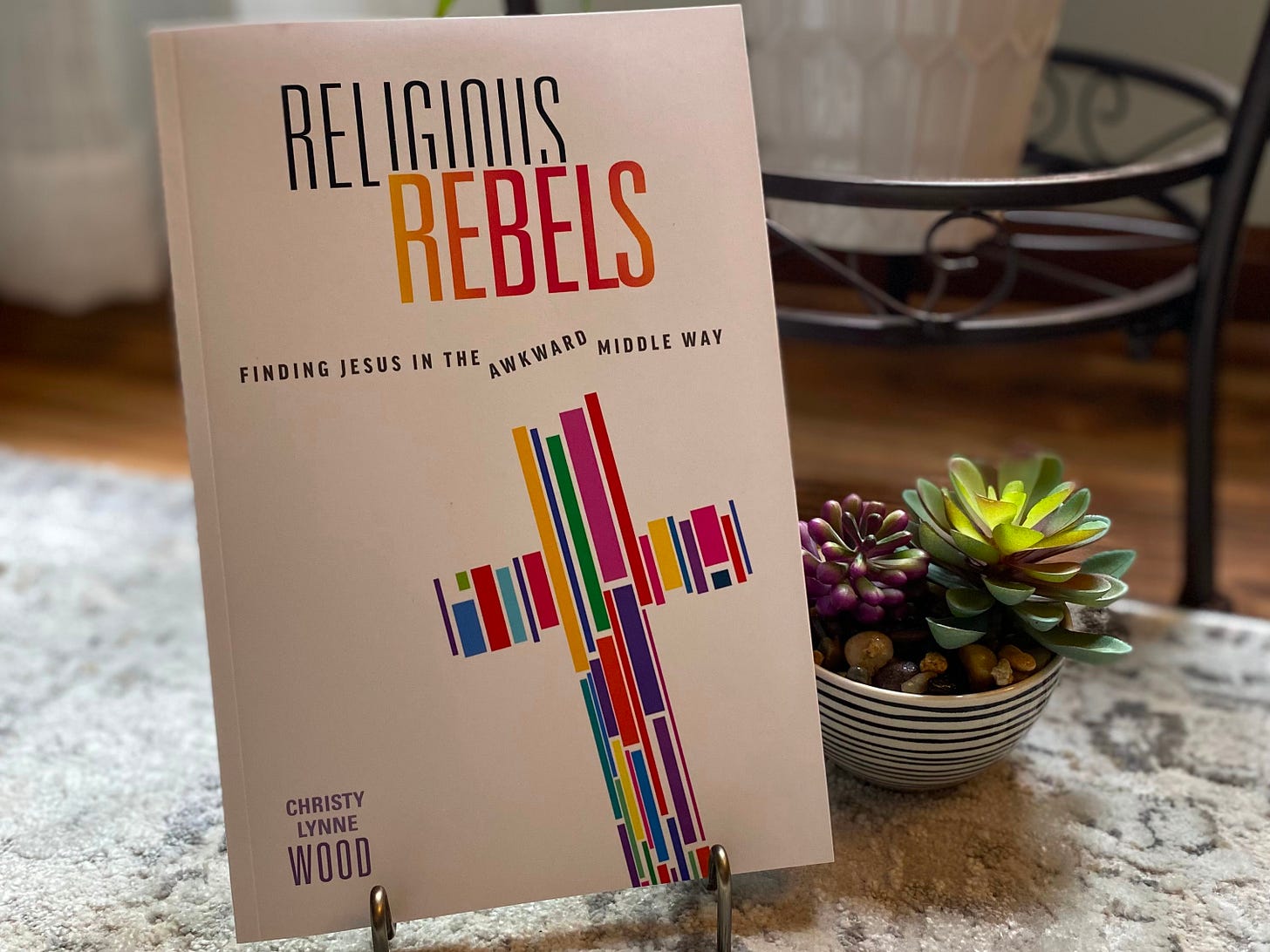I’ve been listening to Mike Cosper’s new podcast with Christianity Today called Devil and the Deep Blue Sea thanks to some recommendations by friends. It’s wild and eye opening. Here is the description from the website:
“They say the Devil’s in the details, but when conspiracies captivate our imaginations, we often overlook the real devils walking among us. From the creators of the hit podcast The Rise and Fall of Mars Hill comes a new show, Devil and the Deep Blue Sea, which takes you back to the Satanic Panic that gripped America in the 1980s and ’90s. This limited series explores how hysteria gripped parents and teens through cautionary tales like Go Ask Alice, influenced notorious criminal cases like the West Memphis Three, and catapulted the political agenda of the Moral Majority. Join as we seek to understand how this wave of panic devastated innocent lives and diverted the church’s attention from the evil lurking in its own pews.”
The Satanic Panic and the Power of Fear
I was born in 1980, so I was a child in the 80s and then a teen in the 90s. We were homeschooled first in normal homeschool land and then in Bill Gothard’s cult called The Advanced Training Institute. I’m still catching up on a lot of the pop culture from the 80s and 90s, but I am very familiar with panic around anything that could be satanic. I wasn’t allowed to watch The Smurfs, my Cabbage Patch dolls and Care Bears disappeared at some point, and any figurine that came to life on a show was considered suspicious. Here’s looking at you, Barney.

Any object could be possessed. I heard anecdotal stories about synthesizers (because drums and beats were from the devil), My Little Ponies, and even clay flutes from a renaissance festival. The fear was real. At one point in my teens, I was pretty sure I had the gift of discerning if a doll was possessed. A few people at my cultic church actually brought me their toys so that I could check them out. I’m not proud of this fact, but you can hear more about it on the episode below from my original podcast.
Listening to Cosper’s podcast is filling in the pieces for me and making my crazy life make a little more sense. I find it fascinating that even the mainstream culture at large was obsessing about satanic cults at the time. Since I was just a kid, I wasn’t aware of things like this. My parents were protecting me. It also makes sense why Bill Gothard and his fundamentalist teachings in The Basic Seminar were so well received by ordinary Christians. (Cosper mentions Gothard in the first episode.) People were afraid, and the confidence Gothard portrayed along with the steps and formulas he gave them provided a sense of security. If we do these things, our children will be safe. But they weren’t safe from a different kind of evil.
I first started to acknowledge the depths of the IBLP (Institute in Basic Life Principles) cult about thirteen years ago. Until that time, I’d pushed it and my decade of crazy fundamentalism into the past and focused on being as normal as I could be in the present. As I dealt with my past, I began to recognize familiar lies within mainstream evangelical Christianity. I remember saying something like, “Bill Gothard did more damage than I thought! His ideas are everywhere.”
People pushed back at the time. They didn’t think Gothard was all that bad. They’d attended his seminar and it had helped them. An agent asked me if I wanted to be the poster child who said Gothard was leading a cult. I specifically took out any mention of Gothard and IBLP in my book Religious Rebels because it always distracted people from the heart of my message.
But now books like
’s Jesus and John Wayne, documentaries like Shiny Happy People, and podcasts like Devil and the Deep Blue Sea have confirmed those suspicious. They name Gothard and call out his lies. I no longer feel alone calling his organization a cult. My strange story is suddenly unfortunately relevant. But Gothard was just one of many evangelical leaders seeking power. because that’s really what it was all about.Building An Empire of Power
The more I learn about the history of the evangelical church in America, the more I find a tangled web of connection between people, ideas, and a politics. We are where we are today because of the foundations that have been laid for the last fifty years. I’ve said before that it feels like my cult is taking over the country. The ideas and goals that have forced their way into the front are familiar to me and honestly, they scare me a little. I’ve lived under the strict moral code of fundamentalism once already and I have no desire to do it again. However, I can see how this movement has captured Christians who are a decade or two older than me. They’ve been prepped for this for years. I can see how it has captured people who haven’t lived it once already. It looks good on the outside. The best lies are almost true.
In the podcast, Mike says that by chasing phantoms, we missed the actual evil in our midst. During the satanic panic of the 80s and 90s, we missed the twisted truths of Gothard. We missed the abuse happening in churches, and we missed the power-players gathering power. It’s all about power—which is funny because Jesus had all the power and chose not to use it.
I hate that I’m no longer surprised when I hear of yet another church pastor or leader who got so caught up in his/her own power struggle that their integrity and honor collapsed in dramatic fashion. I hate that I’m no longer surprised at the things done, and hidden, by the SBC. Evangelical leaders have formed networks and empires around power and called them good. They’ve claimed they are building the Kingdom of God, but in reality they are building an empire for themselves.
What Do We Do?
Reading Jesus and John Wayne, learning about connections within the New Apostolic Reformation, or listening to Devil and the Deep Blue Sea can feel discouraging. I half-jokingly call the American evangelical mess the Christianese Bubble World or the Evangelical Industrial Conglomeration. How do we have any hope of changing something that is so deeply entrenched and has so much money, power, and so many loyal followers? I’m hoping that Mike has ideas before the end of his show; I’m only on episode four.
If you’ve followed me for a while, then you know that I’m not a “burn it down” type of person. I’m angry, but mostly I’m sad. I’ve been deconstructing my evangelical upbringing for over two decades, so this feels unfortunately familiar. What am I going to do? I’m stepping out of the bubble world while staying in my evangelical church. For now. I’m going rogue while keeping my cool. I’m going to continue to learn as much as I can about the history of how we got here. I will continue to expose the lies that are masquerading as truth because I’ve been there, done that already. I will use my story to hopefully warn those getting sucked in, encourage fellow rebels who are out, and point everyone to the real Jesus. I feel a bit like an old testament prophet that no one listened to, ha! But that's okay.
If I’m honest, I think there is a lot of repentance that is needed—both personal and corporate. For healing and change to take place, we need to acknowledge where we were wrong and change our minds. We need to call out the lies, the desire for power and control, and the fear that still consumes.
We also need to seek for better theology. We need the faith deconstruction and reconstruction movement that is shaking up tradition and religion. I’ve found many voices here on Substack who are questioning, doubting, and rethinking their faith, and that encourages me. Ultimately we need an awakening from Jesus. The Holy Spirit is moving—always and forever—so that gives me hope.
As always, I'd love to hear your thoughts, questions, or comments. You can find me on Threads, Instagram, Facebook, my website, and on my original podcast. I’d love to connect with you on any of these places!
My podcast, Religious Rebels, can be found on YouTube, Apple Podcasts, Spotify, iHeart Radio, and more.
You can order an autographed copy of my book, Religious Rebels: Finding Jesus in the Awkward Middle Way by clicking on the button below. Or you can find it on Amazon.









Christy, I'm just a few years younger than you. Same route for my family, but I remember that we got rid of our toys and copies of fairytales, LOTR, and Narnia series before we joined ATI. The influence to do so came from other non-ATI homeschooling families in our rural community, who repeated the lurid rumours to us.
I came to the conclusion years ago that the Satanic Panic was invalid. But I appreciate Cosper's production. I've noticed that many current internet rumours have a marked similarity to rumours during the Satanic Panic, as if nobody had learned their mistake the first time around. Hopefully, the podcast will help people to recognize the truth of the Apostle Paul's warning: "have nothing to do with pointless and silly myths." (I Timothy 4:7, CSB)
Oh my goodness. In my life in Canada during the 80s and 90s I don’t remember anything about things being satanic.
There were some weird movies in 60s and 70s but to me all fantasy. Like Rosemary’s Baby and the Exorcist. I don’t remember anything about dolls or toys. Or even books being satanic.
I do remember in 2000 people were upset with Harry Potter. Wish I had read them then. My granddaughter was 6 when she read her first Harry Potter. Now at 22 she still delights in the imagination of the book.
I had joined a type of evangelical church in 2001. And I became very judgmental. Good thing my family didn’t get upset with me.
But I live in Canada. Maybe that’s why. I wonder if any Canadians had these experiences.